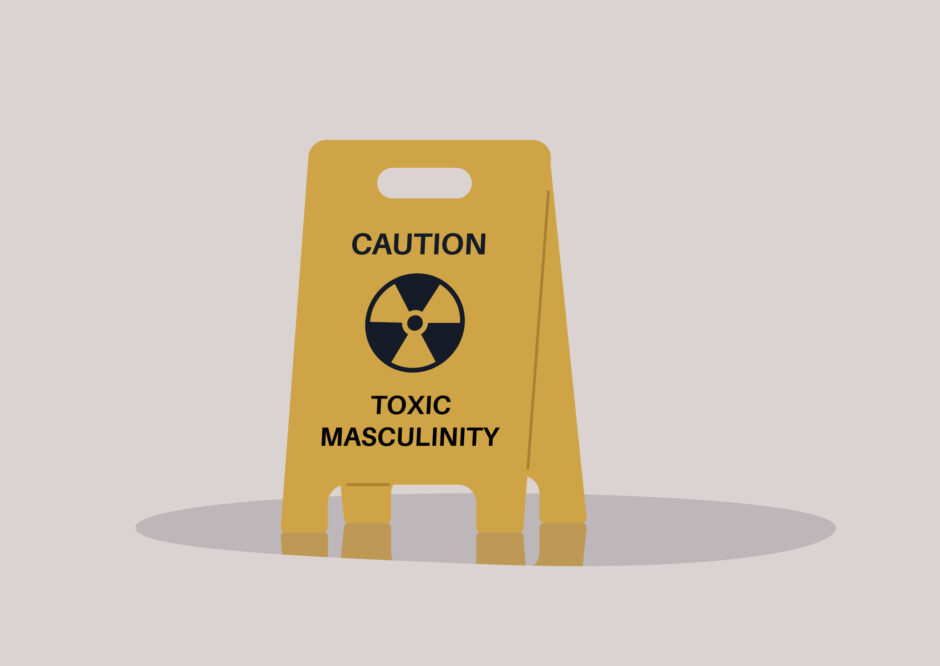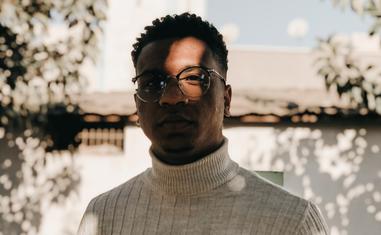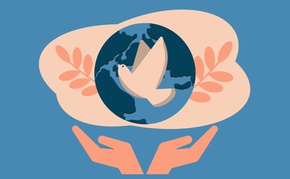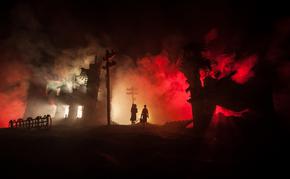The views expressed in our content reflect individual perspectives and do not represent the authoritative views of the Baha'i Faith.
I’ve been a man all my life – except, of course, for that decade or two (or three) when I was a boy – and I’ve rebelled against the traditional definitions of masculinity for that entire time.
For some reason, even as a little kid, I just never wanted to be that guy. You know, the manly man: domineering, hyper-competitive, aggressive, physically violent, bullying, controlling. Maybe my father, who had a few of those character traits himself, unknowingly inoculated me.
When I was 11 years old, just starting to embark on the transition from boyhood to manhood, my dad, who was a Marine World War II hero, told me “To be a man means you must fight a war, love a woman, and father a child.”
RELATED: Does Patriarchy Also Harm Men?
Being by nature a peaceful person, that first part – fight a war – seemed completely insane to me, even as a kid. Why would I kill someone I don’t even know to prove my manhood?
Also, raised as a Lutheran, I had taken to heart the Bible’s “Thou shalt not kill” commandment.
So when I grew up and became a Baha’i at 18, I became a conscientious objector, thus removing the “fight” from the equation of my maleness. Inspired by the Baha’i teachings of peace, I had made the decision never to use violence or to kill another human being. Baha’u’llah, the prophet and founder of the Baha’i Faith, said “It is better for you to be killed than to kill.” So I went to war when my country demanded it and drafted me, but never carried a weapon or hurt anyone.
I know that action saved me from death, and even worse, it saved me from a living death, the extreme permanent trauma and regret and pain and karma caused by taking the life of another human being.
For a long time I felt like I was pretty unusual, even weird, for rejecting those traditional male roles. But today our whole culture seems to be engaged in a battle over masculinity. Some people define every traditionally masculine trait as toxic; and others want to “reclaim” the old male ways, asserting and even turbocharging the dominance, hegemony, and aggression of the paternalistic past. This society-wide debate about manhood has even begun to drive our political divisions and cultural conflicts.
In the battle being waged in the name of masculinity, the words “woke” and “toxic” and even “extinct” have become its modifiers.

In the meantime, hundreds of books and thousands of articles and research studies have examined our traditional gender roles and questioned their utility.
That’s understandable, because the whole definition of what it means to be a man is in flux. What’s a guy supposed to do – or be?
A few years ago, in 2019, the American Psychological Association published new guidelines for the therapeutic treatment of women and girls which called out and condemned traditional masculinity and its qualities of “stoicism, competitiveness, dominance and aggression.” On the whole, the guidelines stated, those qualities are harmful, not just to females but to everyone.
Both before and after I became a Baha’i at 18, like every male I began to encounter the cultural forces and pressures on boys and men to adapt those socially-prescribed qualities. Men were supposed to be stoic and unfeeling – to be emotional or demonstrative was unacceptable, betraying weakness and sensitivity and lack of resolve. Men were supposed to be hyper-competitive, doing battle in the workplace or on the sports field or in actual battles with fists or weapons. Men were supposed to be physically ready for a fight, with the goal of aggressively dominating others through their superior size, strength, and toughness.
Luckily, when I first encountered the Baha’i teachings at the age of 15, those spiritual principles allowed me to think about traditionally male qualities very differently, by introducing me to an exemplary male role model: Abdu’l-Baha, the son and successor of Baha’u’llah, the founder of the Baha’i Faith. Baha’is often call Abdu’l-Baha “the Master” because of his station as the exemplar of what it means to live a Baha’i life – and that example, although it applies to everyone, can be especially helpful and instructive for men.
Abdu’l-Baha lived most of his life as a prisoner of conscience, jailed for his steadfast beliefs in the Baha’i ideals. He spent his days serving the poor and unfortunate, spreading love, compassion, and philanthropic deeds. He believed deeply in the oneness of humanity, considering all people his relatives. He refused to do physical harm to anyone, saying that a Baha’i “commits no violence; if he is struck he does not return the blow.” All across the world, he called everyone to the powerful spiritual vision that defines what it is to be a Baha’i:
… to love God by loving His servants, to exercise mildness and forbearance and calm, to be sincere, amenable, clement and compassionate; to have resolution and courage, trustworthiness and energy, to strive and struggle, to be generous, loyal, without malice, to have zeal and a sense of honor, to be high-minded and magnanimous, and to have regard for the rights of others.
In an interview with a group of journalists aboard ship as he entered New York Harbor for his 8-month speaking tour across North America in 1912, a reporter asked Abdu’l-Baha about his attitude towards one of the major issues of that time – women’s suffrage. In response, he offered an expansive definition of the qualities necessary for the new age humanity is now entering:
The chief cause of the mental and physical inequalities of the sexes is due to custom and training, which for ages past have molded woman into the ideal of the weaker vessel.
The world in the past has been ruled by force, and man has dominated over woman by reason of his more forceful and aggressive qualities both of body and mind. But the scales are already shifting – force is losing its weight and mental alertness, intuition, and the spiritual qualities of love and service, in which woman is strong, are gaining ascendancy. Hence the new age will be an age less masculine, and more permeated with the feminine ideals – or, to speak more exactly, will be an age in which the masculine and feminine elements of civilization will be more properly balanced.
This remarkable statement, made more than a century ago, resonates even more profoundly today.
RELATED: Fatherhood: Redefining What It Means to Be a Man
Force, as Abdu’l-Baha said, is definitely losing its weight. The traditional masculine traits of forcefulness and aggression have outlived their usefulness in this more spiritually-aware age, when love and service will eventually prevail.
The Baha’i teachings say that Baha’u’llah’s revelation has ushered in this new age of humanity. In many of this speeches and addresses in North America, Abdu’l-Baha made that profound claim, as he did in this New York City talk:
From every standpoint the world of humanity is undergoing a reformation. The laws of former governments and civilizations are in process of revision; scientific ideas and theories are developing and advancing to meet a new range of phenomena; invention and discovery are penetrating hitherto unknown fields, revealing new wonders and hidden secrets of the material universe; industries have vastly wider scope and production; everywhere the world of mankind is in the throes of evolutionary activity indicating the passing of the old conditions and advent of the new age of reformation. Old trees yield no fruitage; old ideas and methods are obsolete and worthless now. Old standards of ethics, moral codes and methods of living in the past will not suffice for the present age of advancement and progress. …
This reformation and renewal of the fundamental reality of religion constitute the true and outworking spirit of modernism, the unmistakable light of the world, the manifest effulgence of the Word of God, the divine remedy for all human ailment and the bounty of eternal life to all mankind.
Baha’u’llah, the Sun of Truth, has dawned from the horizon of the Orient, flooding all regions with the light and life which will never pass away.
In the next essay in this series, we’ll explore why some of the traditionally male roles and qualities still have an important purpose, especially when they’re re-imagined in light of the new age we’ve entered.

















Comments
Sign in or create an account
Continue with Facebookor